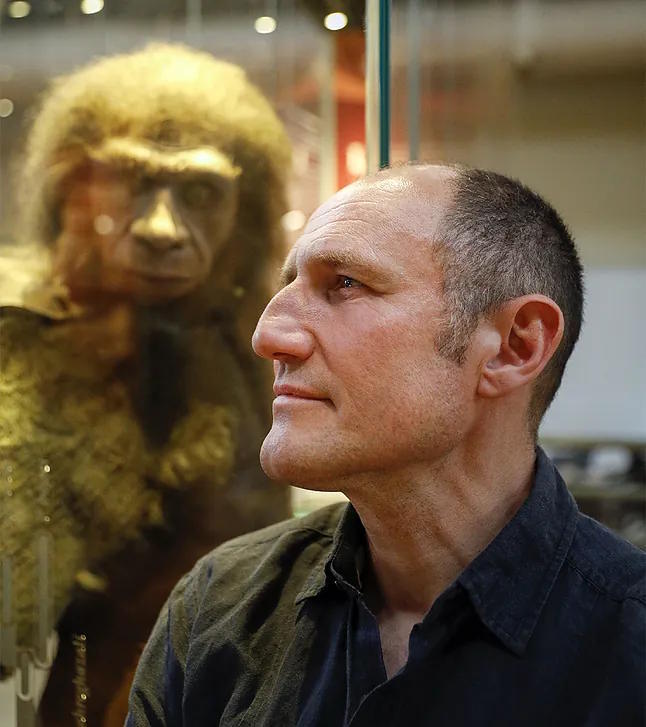The human brain's paradox: "A Ferrari engine trapped in a Seat 600"

The Evolutionary Paradox: How Our Brain's Superpower Fuels Anxiety and Depression
Human beings possess a unique cognitive ability that has propelled us to the pinnacle of social and technological development. Yet, this same capacity—our brain’s extraordinary power to project images and words—is also at the root of our emotional struggles, including anxiety and depression. Paleoneurobiologist Emiliano Bruner explores this paradox in depth, shedding light on how evolution has shaped our minds in ways that both empower and burden us.
A Unique Mental Superpower
According to Bruner, humans have developed an unparalleled ability to process thousands of words and images per minute. This mental agility allows us to conceptualize ideas, imagine scenarios, and communicate abstract thoughts with precision. "We can imagine an apple even if we don’t have one in front of us and define it with a word," he explains. This is more than just intelligence—it's a superpower.
Such cognitive prowess has enabled monumental achievements throughout history, from building complex societies to launching satellites into space. But as with all great powers, there is a cost.
The Dark Side of Cognitive Power
While our brains allow us to create virtual worlds in our minds, they also make us vulnerable to emotional distress when those projections spiral out of control. Bruner describes this phenomenon as “Radio Sapiens”—an internal monologue that becomes impossible to silence. Thoughts race, memories haunt, and futures worry us endlessly. We become consumed by rumination, unable to focus on the present moment.
This overactive imagination leads to conditions like anxiety, melancholy, and depression. In essence, the very tool that makes us human also subjects us to psychological suffering.
Bruner likens the brain to a Ferrari engine placed inside a small car: it has incredible power, but the structure isn't always equipped to handle it. Our neural architecture, shaped by millions of years of evolution, sometimes fails to regulate the intensity of our thoughts effectively.
The Biological Roots of Emotional Distress
Why would evolution favor such a system? Bruner argues that this cognitive overload may be a side effect of natural selection’s ultimate goal: reproduction. Evolution doesn't prioritize happiness or well-being; it prioritizes reproductive success. Traits that increase the likelihood of having offspring are preserved, regardless of their impact on individual contentment.
In ancient times, this meant that individuals who experienced heightened alertness, competition, and stress were more likely to survive and reproduce. Today, however, these same evolutionary pressures manifest as chronic anxiety and dissatisfaction.
Every culture throughout history has grappled with this issue, referring to it as a “curse” of overthinking. From ancient Egyptian teachings to modern self-help literature, humanity has long searched for ways to quiet the mind and find peace within the evolutionary framework.
Can We Escape the Evolutionary Cage?
Is it possible to reclaim personal happiness despite the biological imperatives driving us? Bruner suggests that understanding the transient nature of life can help. All species eventually go extinct, and Homo sapiens will be no exception. Recognizing this inevitability can free us from the pressure to constantly strive, reproduce, and compete.
He encourages a shift in mindset—one that values the present over the future, and personal fulfillment over societal expectations. While evolution may have programmed us for perpetual dissatisfaction, awareness of this mechanism empowers us to seek balance and meaning beyond mere reproduction.
In doing so, we begin to challenge the narrative that our worth is tied solely to legacy or lineage. Instead, we can redefine success on our own terms—embracing impermanence and cultivating inner peace in a world built by, and sometimes against, our own minds.
Post a Comment for "The human brain's paradox: "A Ferrari engine trapped in a Seat 600""
Post a Comment